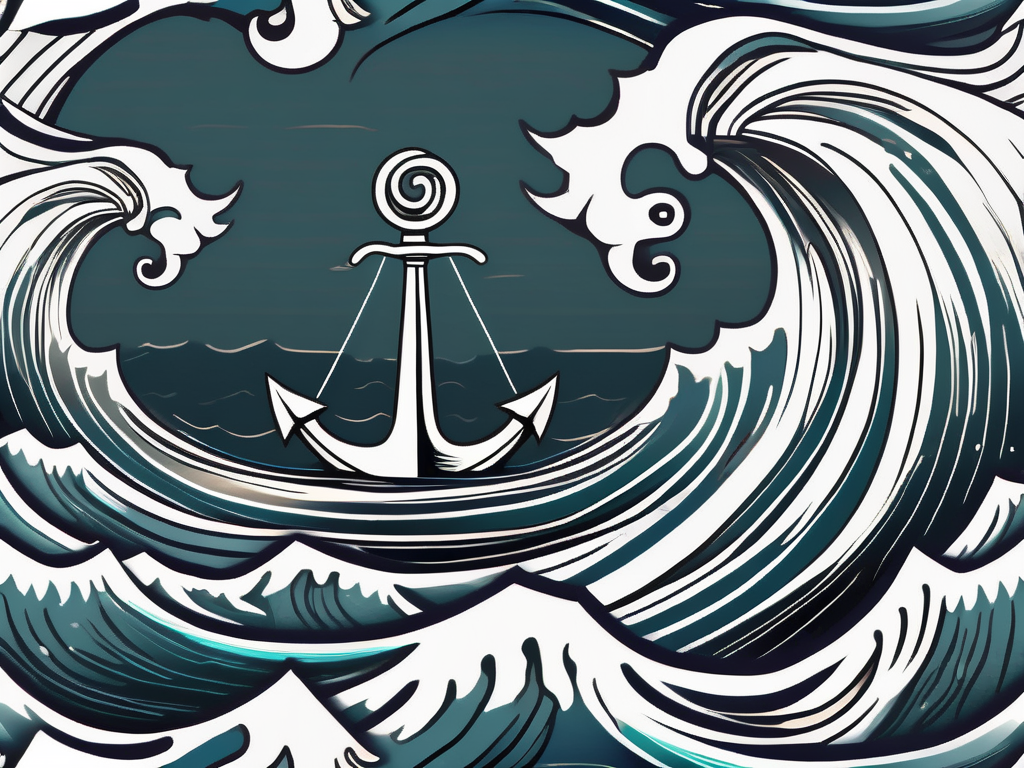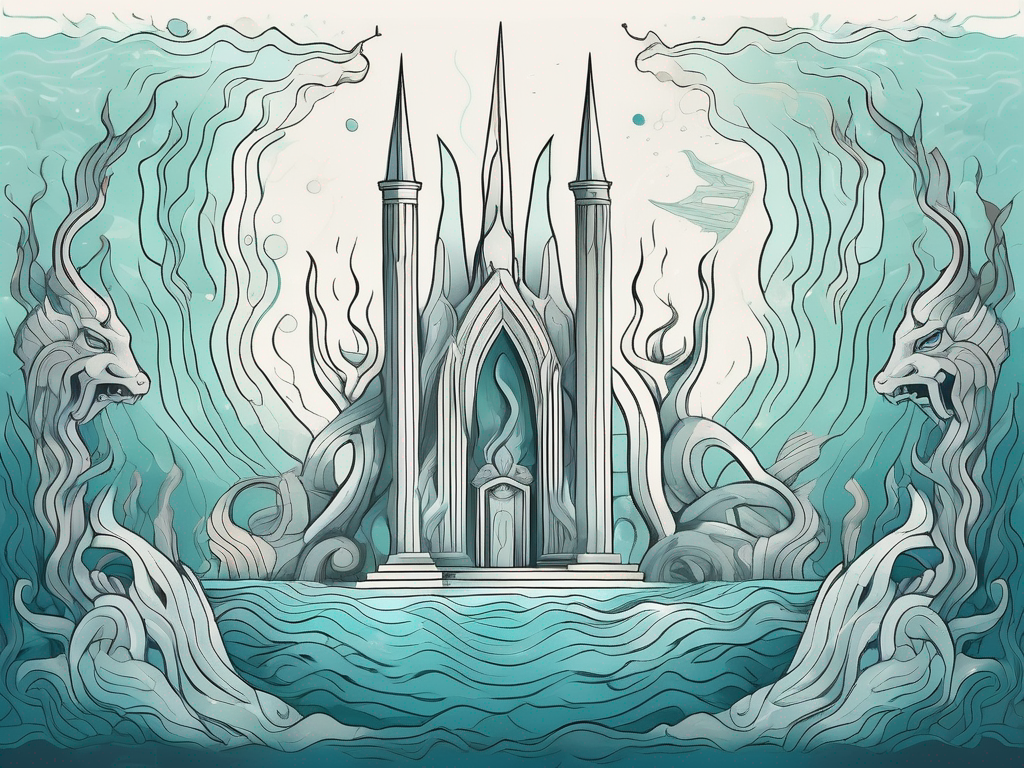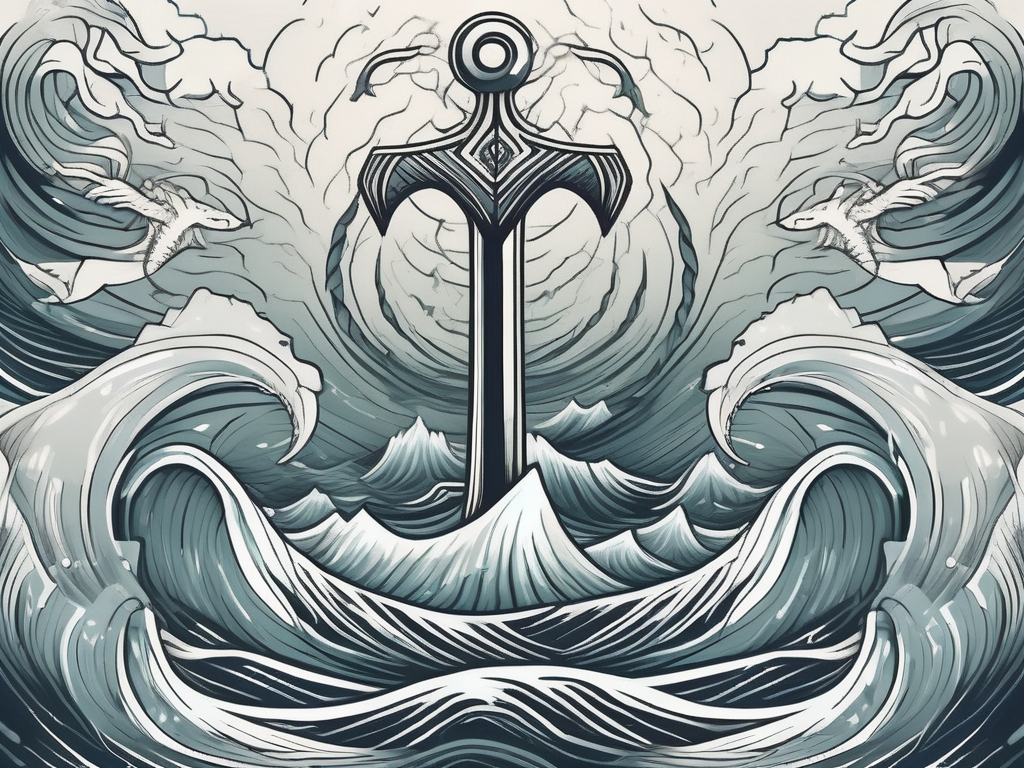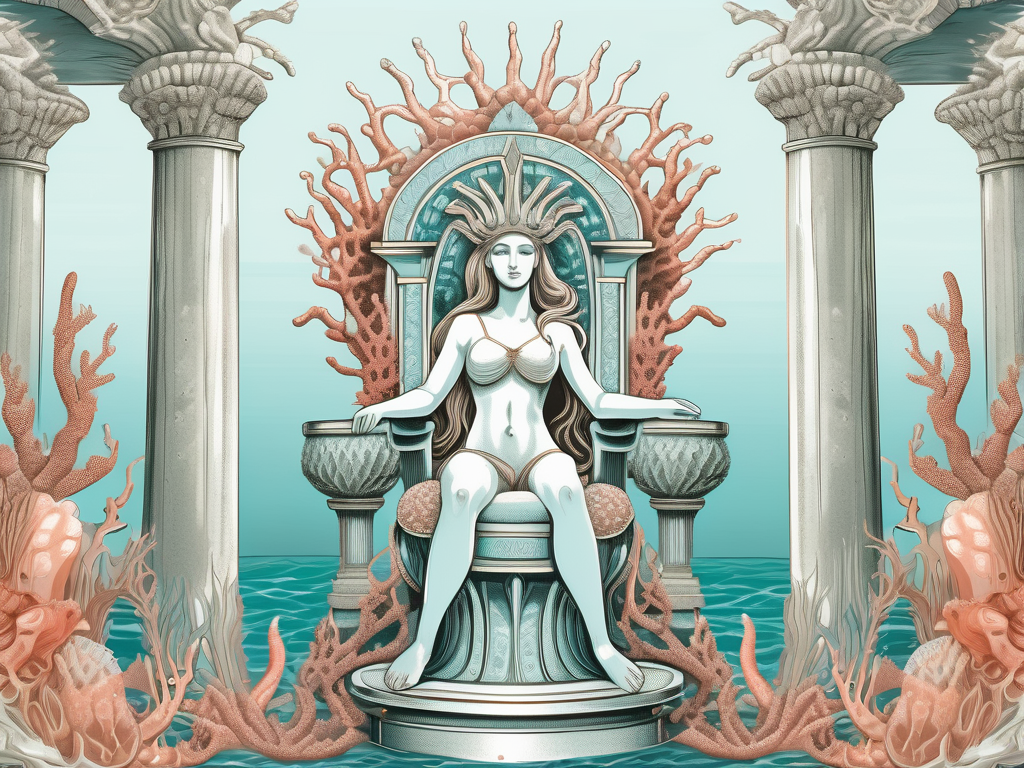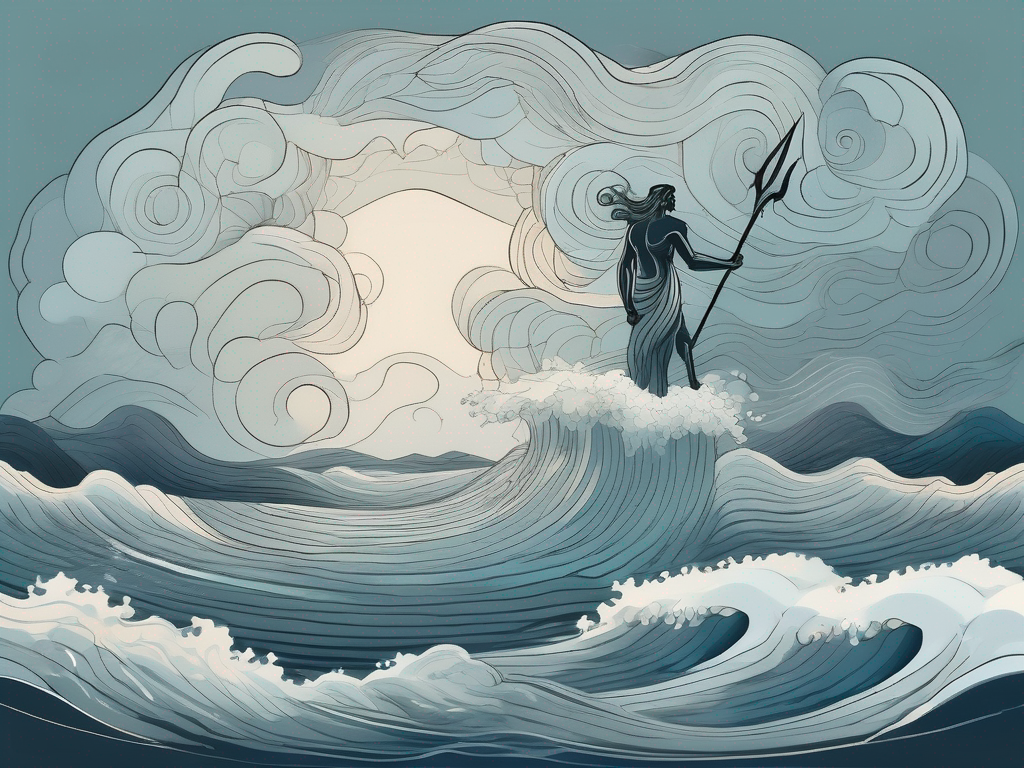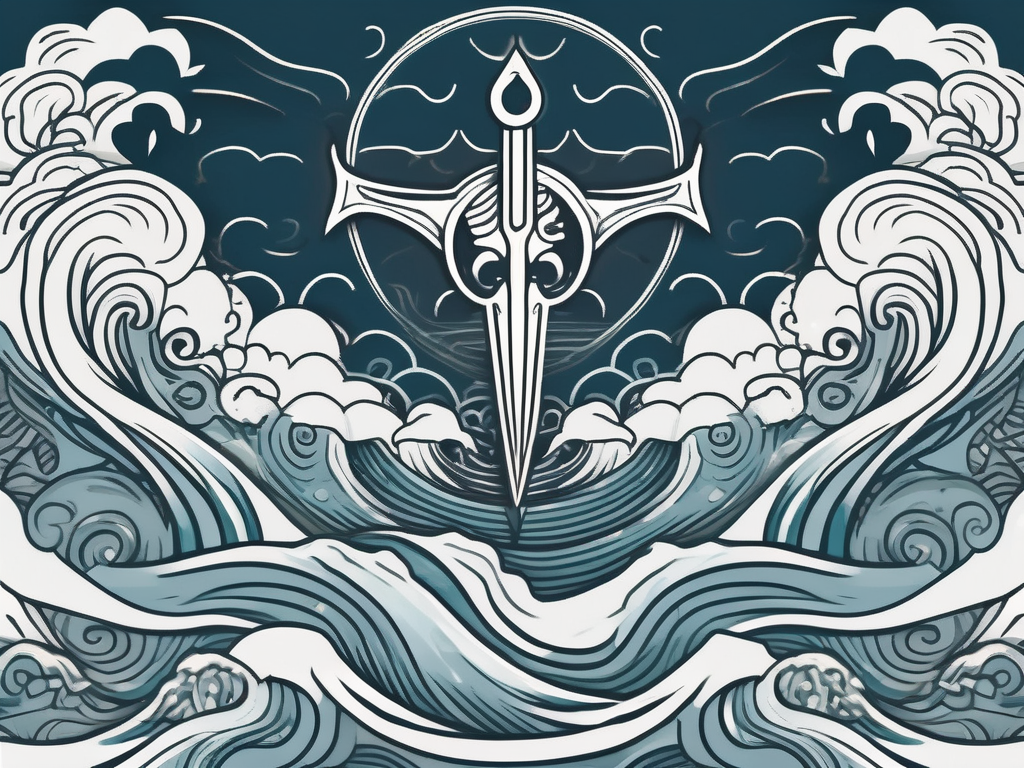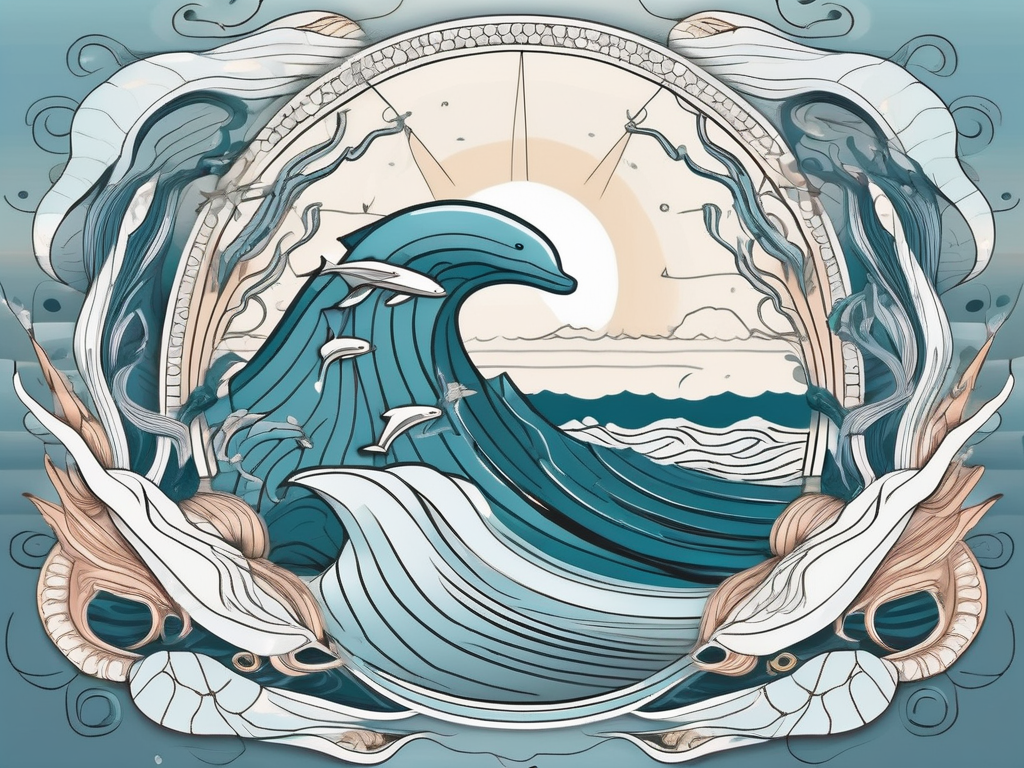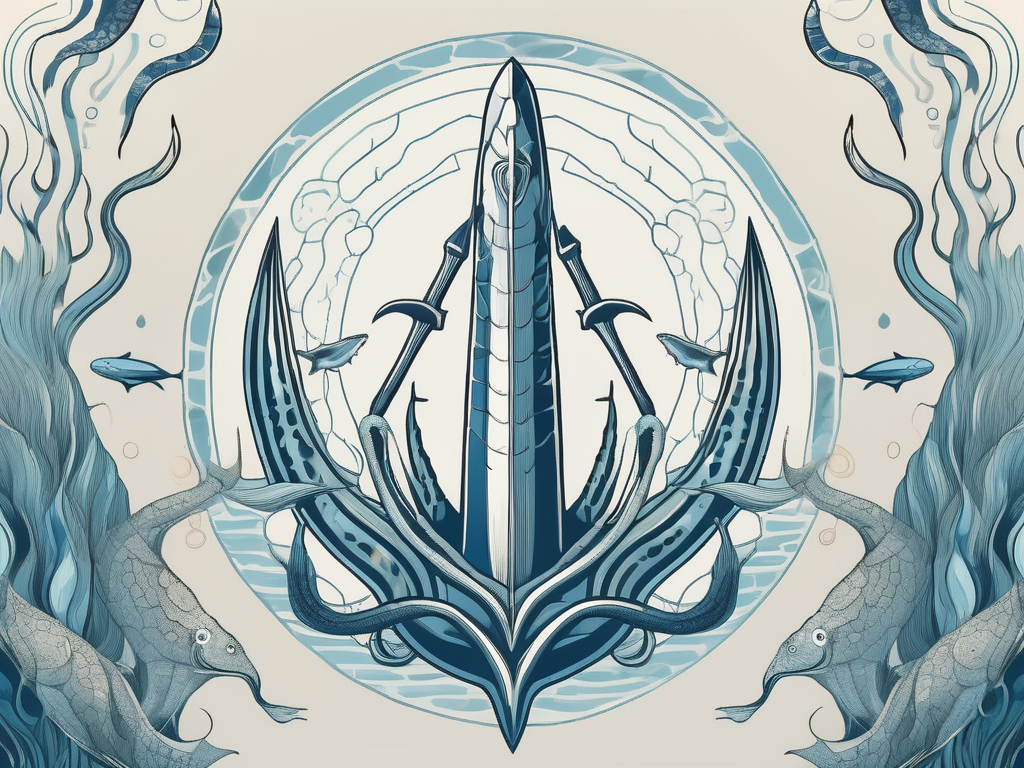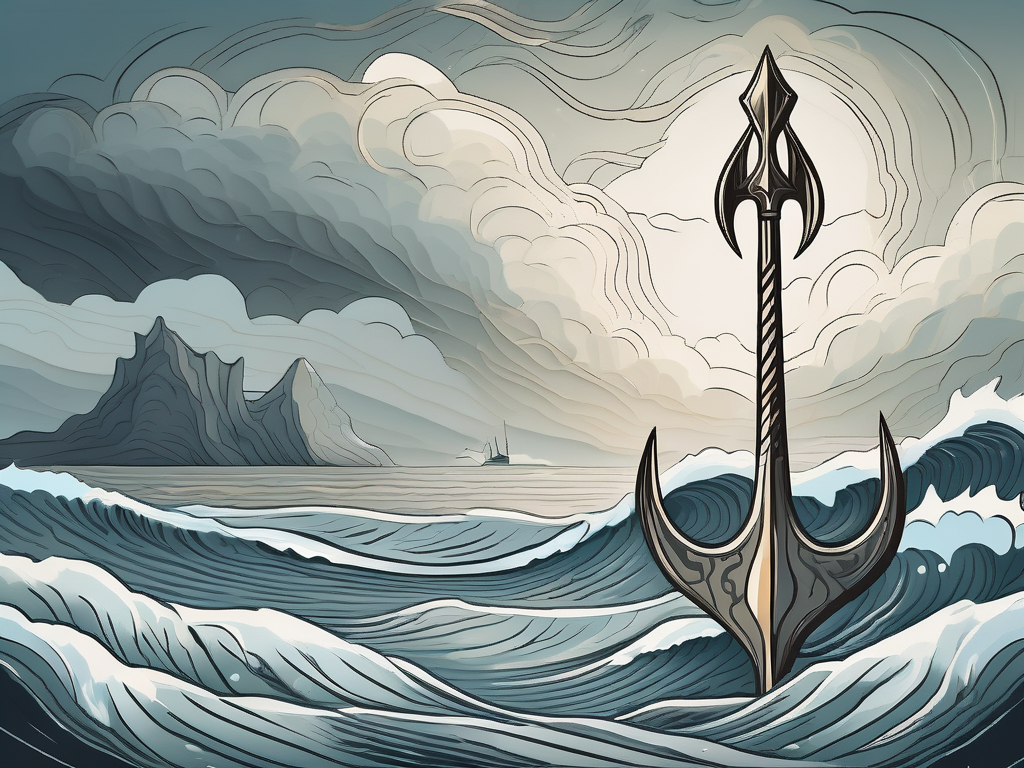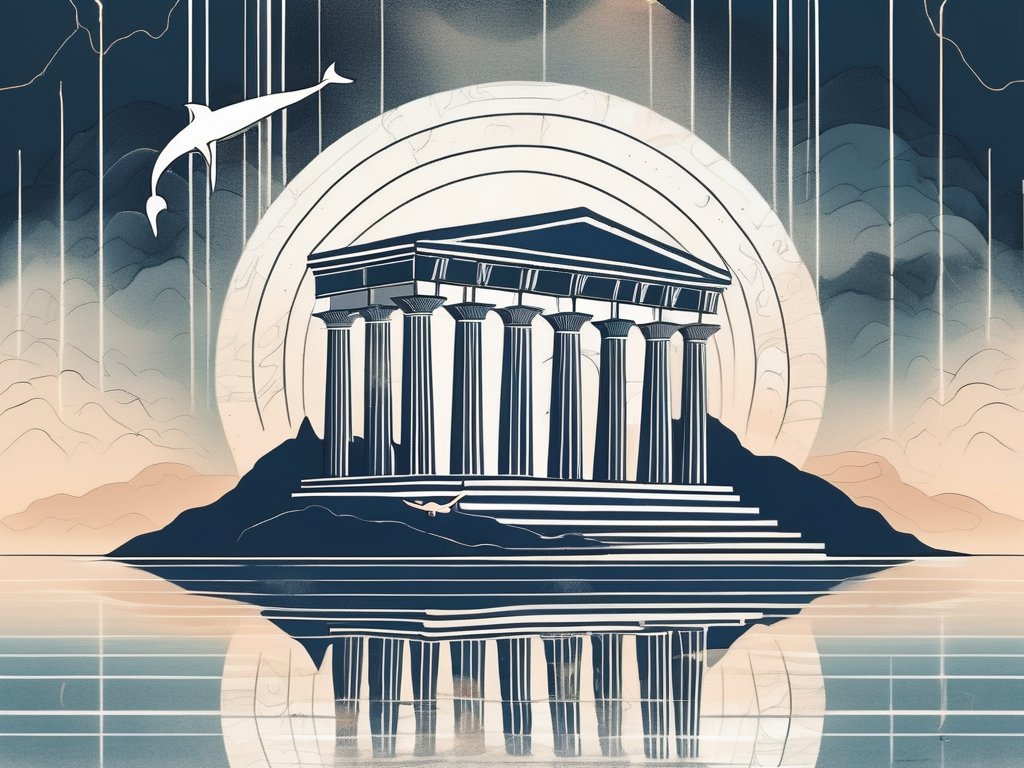Poseidon, the Greek god of the sea, has captured the imagination of people throughout history. With his trident in hand and his mighty power over waves and ocean depths, Poseidon is a formidable and captivating figure in Greek mythology. In this article, we will dive deep into the mythical world of Poseidon to understand his role, his relationships, his influence on Greek society, his depiction in art and literature, as well as his modern interpretations and legacy.
Understanding Poseidon: An Introduction
Before we explore the various aspects of Poseidon’s character and influence, let’s first get acquainted with this mighty deity. Poseidon, also known as Neptunus in Roman mythology, is one of the twelve Olympians, the major gods and goddesses worshipped by the ancient Greeks. He is the son of Cronus and Rhea and belongs to the first generation of Olympian gods.
Poseidon is commonly depicted as a bearded man with a muscular build, often sitting atop crashing waves or riding a chariot pulled by colossal seahorses. His symbol is the trident, a three-pronged spear that represents his dominion over the sea, earthquakes, and horses, which were also closely associated with him.
But what lies beneath the surface of Poseidon’s awe-inspiring appearance? Let’s dive deeper into the role of this powerful god in Greek mythology.
The Role of Poseidon in Greek Mythology
In Greek mythology, Poseidon played a vital role as the god of the sea. It was believed that he controlled the oceans, creating storms or calming the waters with a single flick of his trident. Sailors, fishermen, and anyone venturing out into the vast expanse of the sea would offer prayers and sacrifices to Poseidon for safe voyages.
But Poseidon’s influence extended beyond just the sea. As the “Earth-shaker,” he possessed the ability to cause earthquakes, unleashing his power from the depths of the earth. This dual role as the god of the sea and earthquakes made him a force to be reckoned with, symbolizing both destruction and fertility.
Legend has it that Poseidon’s trident had the power to create new land, as well as to destroy it. With a strike of his mighty weapon, he could shape coastlines and alter the geography of the world. This connection to the land further solidified his status as a god with immense power and influence.
Poseidon’s Powers and Symbols
As the god of the sea, Poseidon possessed immense power over marine life, ruling the creatures that dwell beneath the waves. According to myth, he had the ability to communicate with sea creatures and summon water nymphs at will. These mythical beings served as his loyal companions and messengers, aiding him in his endeavors.
In addition to his trident, Poseidon was often depicted carrying a fisherman’s net or a dolphin, further emphasizing his connection to the sea and its inhabitants. Dolphins, which were considered sacred to Poseidon, were believed to be messengers sent by the god to help those in need at sea. Sailors would often spot dolphins swimming alongside their ships, a sign of Poseidon’s protection and favor.
It is said that Poseidon’s trident had the power to control the weather, allowing him to summon storms or calm the seas at will. Sailors would look to the skies, searching for signs of Poseidon’s influence, hoping for fair winds and smooth sailing.
But Poseidon’s dominion extended beyond the sea and the earth. He was also associated with horses, which were considered sacred to him. As the god of horses, Poseidon was believed to have the ability to tame and control these majestic creatures. Horses were often sacrificed to him as a sign of reverence and to seek his favor in equestrian endeavors.
So, as we embark on this journey to explore Poseidon’s character and influence, let us remember the vast scope of his powers and symbols. From the depths of the sea to the heights of the heavens, Poseidon’s presence is felt, shaping the world and leaving an indelible mark on Greek mythology.
The Sea God’s Family and Relationships
Poseidon, the mighty god of the sea, is a prominent figure in Greek mythology. His divine lineage and relationships with other gods and mortals shape his character and influence his role in the world.
Poseidon’s Divine Siblings
As one of the Olympian gods, Poseidon shares illustrious parentage. He is the brother of Zeus, the king of the Olympian gods, and Hades, the ruler of the underworld. Together, the three brothers formed a powerful triumvirate, each presiding over different realms of the world.
Zeus, the ruler of the heavens, embodied justice and order. His authority extended over the gods and mortals, ensuring that the natural order of the universe was maintained. In contrast, Poseidon’s domain was the turbulent and unpredictable sea, reflecting his more tempestuous and volatile nature. He commanded the waves, storms, and all creatures that dwelled beneath the vast expanse of the ocean.
Hades, the lord of the underworld, ruled over the realm of the dead. He was responsible for the souls of the deceased, ensuring their journey to the afterlife. While Zeus and Poseidon held dominion over the living, Hades governed the realm of the departed, maintaining a delicate balance between life and death.
Poseidon’s Love Affairs and Offspring
Like many gods in Greek mythology, Poseidon indulged in numerous love affairs, resulting in a vast lineage of mortal and immortal offspring. One of his most famous love affairs was with the Nereid Amphitrite, a sea nymph who became his queen.
Amphitrite, a beautiful and enchanting nymph, captured Poseidon’s heart with her grace and charm. Together, Poseidon and Amphitrite had several children, each inheriting their father’s affinity for the sea. Among their offspring were Triton, a powerful sea god known for his ability to calm the waves and guide sailors, and Rhode, a goddess associated with the island of Rhodes.
In addition to his children with Amphitrite, Poseidon fathered other noteworthy figures. Theseus, the legendary hero of Athens, was one of his mortal offspring. Blessed with his father’s strength and courage, Theseus embarked on numerous heroic quests, including the slaying of the Minotaur in the labyrinth of Crete.
Another notable offspring of Poseidon was the fearsome Cyclops Polyphemus. Known for his single eye and immense strength, Polyphemus played a significant role in the epic tale of Odysseus. The hero encountered the Cyclops during his journey back to Ithaca, where he outwitted the giant and escaped his clutches.
Through his love affairs and relationships, Poseidon’s family expanded far and wide, leaving a lasting impact on both the mortal and divine realms. His descendants carried on his legacy, shaping the world in their own unique ways.
Poseidon’s Influence on Ancient Greek Society
Worship and Temples of Poseidon
The worship of Poseidon held a significant place in ancient Greek society, especially in coastal regions and among seafaring communities. Temples dedicated to the sea god were constructed near the coast, often overlooking the vast expanse of the ocean.
One of the most famous temples dedicated to Poseidon is located at Cape Sounion in Attica, Greece. This majestic structure, perched atop a cliff, provided a breathtaking view of the Aegean Sea and served as a place of worship and veneration for sailors and travelers.
Festivals and Rituals in Honor of Poseidon
To honor Poseidon, ancient Greeks celebrated various festivals and performed rituals dedicated to the sea god. Among these events, the most renowned was the “Isthmian Games,” held every two years at the Isthmus of Corinth in honor of Poseidon.
The Isthmian Games featured a range of athletic competitions, including foot races, wrestling, and chariot races. These were accompanied by music, poetry, and sacrifices to appease Poseidon and seek his favor, ensuring safe journeys and prosperity for the participants.
Poseidon’s Depiction in Ancient Art and Literature
Poseidon in Greek Vase Painting
Ancient Greek artists often depicted Poseidon in their pottery and vase paintings, capturing his powerful presence and mythical nature. These intricate and detailed works of art offered a glimpse into the fascinating world of Greek mythology and the reverence bestowed upon the sea god.
In these artistic representations, Poseidon was often portrayed as a regal figure, surrounded by sea creatures and attended by nymphs. His trident, the embodiment of his sea power, was a constant presence, symbolizing his authority and control over the vast waters.
Poseidon in Epic Poetry and Drama
Poseidon’s influence extended beyond visual art and made its mark on the realm of literature. In epic poems such as the “Iliad” and the “Odyssey” by Homer, Poseidon plays a prominent role, influencing the narratives with his formidable presence.
The wrath of Poseidon against the Greek hero Odysseus, detailed in the “Odyssey,” served as a testament to his power and as a formidable obstacle for the protagonist to overcome in his quest to return home.
Modern Interpretations of Poseidon
Poseidon in Popular Culture
The mythical power of Poseidon continues to captivate modern audiences through various forms of popular culture. From movies to video games, Poseidon is often portrayed as a mighty deity with a tempestuous temperament.
One notable portrayal of Poseidon can be found in the “Percy Jackson” book series by Rick Riordan, where the Greek gods interact with modern-day demigods. Poseidon’s character in these books showcases his godly might and the complexities of his relationship with his son, Percy Jackson.
Poseidon’s Legacy in Modern Greece
Even in modern-day Greece, the legacy of Poseidon remains alive and well. The importance of the sea to Greek culture and society is evident in the numerous coastal towns and cities, which still rely heavily on fishing and tourism.
Additionally, Cape Sounion, with its stunning temple dedicated to Poseidon, continues to draw visitors who seek to connect with the mythical power of the sea and pay homage to the ancient traditions and beliefs associated with this legendary deity.
In conclusion, the mythical power of Poseidon, the Greek god of the sea, is a captivating subject that spans across various aspects of ancient Greek society, art, literature, and beyond. From his role as a fearsome and unpredictable deity to his enduring influence on modern interpretations and cultural practices, Poseidon’s legacy continues to enthrall and inspire us, reminding us of the enduring power and allure of the mighty sea.
